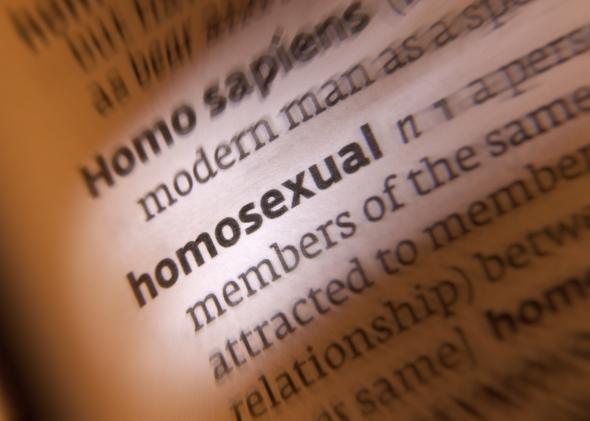The trouble with writing about how a minority community “feels” about a given term or phrase is that, invariably, some members of that community will not, in fact, feel that way. Such was my experience with “The Decline and Fall of the ‘H’ Word,” a New York Times weekend Fashion & Style piece that revealed that gay and lesbian people now find the word homosexual to be “pejorative.” In the article, the noted gay historian George Chauncey went so far as to tell reporter Jeremy W. Peters that the term was analogous to “colored,” a clearly offensive word that only unreconstructed grandmothers still use with reference to African-Americans. With all-due-respect to Mr. Chauncey, I must confess dissent: My own gay feelings about the word are pretty much in line with the Times’ you-think-this-but-you’re-wrong definition—“A little outdated and clinical, perhaps, but innocuous enough.” And, as a member of The Community in Question, I’m willing to grant you—a well-intentioned, LGBTQ-friendly reader—permission to use homosexual when the occasion calls for it.
A few reasons: For starters, let’s not get in the habit of letting the overseers at GLAAD, on whose authority this article hinges, rescind access to words that really are innocuous. I am very happy for those folks to police truly offensive, defamatory speech, but homosexual—which, as a noun in common usage, means a person who is attracted to their same sex (like me!)—just doesn’t reach that level. We can agree that the word has a certain old-fashioned coolness to it, but so what? Lesbian is drawn from ancient Greek and used to essentially mean “lady sodomite” (not nice), and, in any case, some contexts are better served by a bit of remove from the familiarity of “gay dude.”
It’s true, as the Times piece points out, that homo-haters like Rush Limbaugh and Antonin Scalia deploy homosexual as an othering device, pronouncing it in the same sort of latex disdain that I wear when dealing with words like objectivism or Rush Limbaugh. But, come on: In those kinds of mouths, gay is going to come out the same way—and do we really want to let them determine what we can do with ours?
I say no, but that’s a matter of strategy that we can debate. To bring more weight to the subject, Peters quoted U.C.-Berkeley’s George P. Lakoff, a professor of cognitive science and linguistics, who observed that gay and lesbian do not “use the word sex,” while homo-sex-ual does. Additionally, the latter contains “homo,” which, while being a prefix that means “the same,” is also sometimes used derogatorily.* For Lakoff, the whole word is a dog-whistle for homophobes (can we still say that?) who want to make same-sex sex seem icky.
But isn’t this a matter of perspective? One of my main struggles as a homosexual has been challenging the tendency of many straight people to treat my partner and me as “roommates” or “good friends,” when, in fact, we have sex. Gay sex. Regularly. If homosexual can help remind them of that important, definitional, politically crucial fact with less effort on my part, I say it’s a plus, not a minus.
While the Times article notes that “scholars expect the use of the term to eventually fall away entirely,” it doesn’t really consider the problems that loss could cause. It’s worth noting that gay has contested meanings as well, and by my definition of that word—which, very generally, has far more to do with a historically and geographically specific constellation of aesthetic tastes, artistic styles and modes of relating than with genitals—there are far fewer gay people around these days than there are homosexuals. But again, that’s my definition, and I’m not terribly interested in enforcing it on anyone. This point is that just as homosexual doesn’t suit everybody, gay, at least by some measures, isn’t all-fitting either. Given that fact, it’s probably best to avoid declarations on the subject altogether and to let people name themselves—that was, after all, the point of liberation in the first place.
*Correction, March 25, 2014: This post originally misspelled U.C.-Berkeley.
